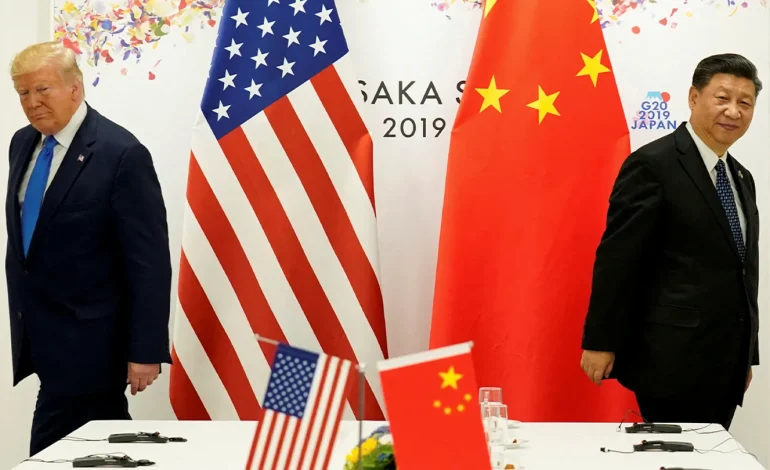In response to the growing economic pressures from escalating trade tensions with the US, China’s central bank has directed state-owned banks to scale back their purchases of US dollars.
This move comes as the yuan faces significant downward pressure, exacerbated by new tariffs imposed by the US on Chinese exports.
The People’s Bank of China (PBOC) has taken steps to manage the yuan’s value and stabilize the financial markets, emphasizing that it will not allow a sharp devaluation. The yuan has already seen a notable decline, losing approximately 1.3% against the dollar so far this month, reaching 7.35 yuan per dollar in the onshore market. Meanwhile, the offshore yuan hit a record low in overnight trading.
This depreciation follows a series of tariff increases by US President Donald Trump. Last week, Trump announced additional tariffs on Chinese goods, including a 34% levy on top of the earlier 20% duty. China responded with a matching 34% tariff, prompting further retaliatory actions, including a 50% tariff increase. These escalating trade tensions have placed significant strain on the yuan and raised concerns about the broader impact on China’s export-driven economy.
In response to the economic turmoil, China’s central bank has issued informal guidance to major state-owned banks, instructing them to limit their US dollar purchases for proprietary accounts and increase scrutiny when executing dollar transactions for clients. This move aims to curb speculative trades and prevent further weakening of the yuan in the foreign exchange market.
State banks have already been observed aggressively selling dollars and purchasing yuan in an attempt to slow the currency’s decline. This strategy aligns with the PBOC’s broader goal of maintaining currency stability while avoiding a sharp depreciation, which could undermine investor confidence and exacerbate capital outflows.
While the PBOC has not ruled out a modest depreciation of the yuan, it has made it clear that a significant drop in the currency is not desirable. A sharp devaluation could have negative consequences for market sentiment and international trade relations, particularly with the US The central bank has signaled that it would prefer a gradual depreciation, as this could potentially support China’s exports by making goods more competitively priced on the international market.
“We should also assist key enterprises through subsidies, tax rebates, or market diversification,” said one policy advisor.
They emphasized the importance of supporting Chinese businesses amid the trade conflict.
The worsening trade war with the US poses serious challenges for China’s massive export sector, which has long been a key driver of economic growth. With tariffs making Chinese goods more expensive for US consumers, China’s ability to maintain its export volume is under increasing pressure. The PBOC’s efforts to manage the yuan’s value are part of broader efforts to ensure financial market stability during this period of heightened uncertainty.
Despite these efforts, analysts are closely watching the situation for any signs that China might allow a more significant depreciation of its currency. Some market observers predict that the yuan could weaken further if the trade war continues to intensify, though most expect the PBOC to avoid drastic moves due to the risks of capital outflows and diminished confidence in the Chinese economy.
While the immediate focus remains on stabilizing the yuan, many analysts are speculating that China’s central bank may eventually need to adjust its monetary policy further to manage the economic fallout from the trade war. This could involve more aggressive market interventions, adjustments to foreign-exchange liquidity, or the issuance of offshore bills to help mitigate volatility.
“Most expect to see a gradual adjustment in the yuan’s value,” said Ken Cheung, chief Asia FX strategist at Mizuho Bank. “A sharp depreciation, however, is unlikely, given the risks it poses to capital flows and overall economic stability.”
FOX Business, Reuters, and Bloomberg contributed to this report.










The latest news in your social feeds
Subscribe to our social media platforms to stay tuned